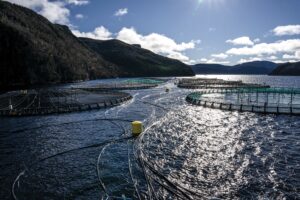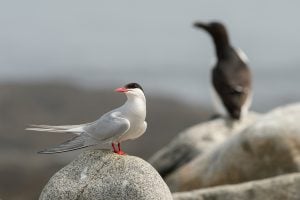The same could be said of Rytz, who’s had an interesting start to 2018. Although his film is sure to receive a warm reception at Sundance, a festival that has long championed films and filmmakers documenting climate change, Rytz himself was recently arrested and had his gear seized by Kiribati police and immigration officials upon his return to the country. (Rytz is now safely in North America, after escaping Kiribati to the nearby island of Nauru).
“The Kiribati ambassador at the United Nations wrote an official letter to [try and] ban the Sundance premiere,” Rytz explains. “This censorship has one goal: implanting a new vision that denies the need to find another place to live.”
The loudest voice of denial about Kiribati’s plight is Taneti Mamau, the country’s new president, who, according to the film, has reversed many of Tong’s policies and action plans. “The people of the world have been threatened that Kiribati will be sinking, but I am now ready to spread a message to the world that Kiribati will not sink,” Mamau said in a recent radio broadcast — an administrative 180 from Tong’s presidency.
Tong himself is unequivocal: “Climate change should not be a political issue,” he says in the film, “because it’s about the survival of our people.”
Of course, as Anote’s Ark shows via drone videography and on-the-ground footage, climate change is real — and happening now. To explain humanity’s unwillingness to deal with the problem, Rytz invokes the parable of the boiling frog: The idea that a frog thrown into boiling water would immediately jump out, but place a frog in water and raise the temperature slowly, and it won’t perceive the danger to its survival.
This, Rytz argues, is what’s happening to the world at large. Indeed, where Al Gore’s 2017 project An Inconvenient Sequel features Miami residents concerned about their future, Anote’s Ark reveals a populace concerned with their present. The result is alarming.
“What we are witnessing in Kiribati is a new phenomenon that goes way beyond national boundaries and that should be addressed urgently,” Rytz says. “If we don’t deeply change our behaviours, humanity is on the brink of being ripped off the surface of the earth.”
Jake Howell is a Toronto-based writer whose work has appeared in the Globe and Mail, Maclean’s, and the Toronto Star.




